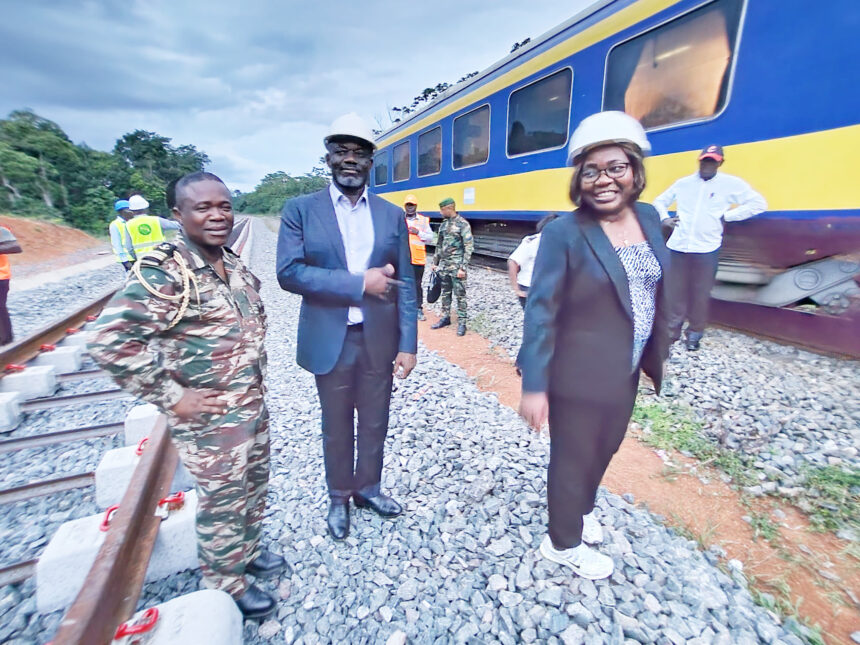OWENDO – Through dense equatorial rainforest the train steamed ahead along Gabon’s sole railway line, a vital yet unreliable cog shuttling minerals, people and timber — as well as the odd coffin — across the country.
“We’re forced to take the train. It’s not a choice,” said Aaron Houchi, a radiologist comfortably sat in the plush red velvet of first class while en route to a funeral in the central town of Koulamoutou — with the deceased’s remains treated to their very own dedicated carriage.
But with its swinging suspension bridges and at times swampy foundations, the Transgabonais railway, whose first tracks were laid in the 1970s, is in desperate need of renovation to slam the breaks on the line’s degradation.
“We should have recorded between six and seven broken tracks across the entire line in one year,” said Christian Magni, director general of the Transgabonais’s operator Setrag.
Instead, the railway, which links the central African country’s mining regions to the capital Libreville and the Atlantic port of Owendo, had 1,000 broken tracks in 2022 and 650 in 2023.
The Transgabonais’s woes are symptomatic of the parlous state of the country’s infrastructure — a hot topic for Gabonese who will on Saturday vote to choose the first elected president since a 2023 coup.
In 2024 under coup leader Brice Oligui Nguema — the favourite to win the presidential vote — Gabon embarked on an ambitious modernisation programme, pledging to replace around 270 of the line’s 648 kilometres of track (167 of 403 miles) by 2027.
Yet delays persist. The thrice-weekly “express” train from Libreville to Franceville, the third largest city, can take up to 22 hours.
Small wonder Houchi, the radiologist, said he misses the days when travellers could take the plane along a since-disappeared airline route instead.
The line was dreamt up by Gabon’s former president, Omar Bongo, who ruled for 42 years until his death in 2009.
When the line’s last stretch of track was laid in 1986, the Transgabonais was intended uniquely for the transport of manganese, used in steelmaking and batteries.
At the time it carried around one million tonnes of the mineral, from the mines of Moanda in the east to the port of Owendo for export abroad.
Today it carries nine to 10 million tonnes a year, along with 300,000 passengers.
Yet across decades of government mismanagement under Bongo and then his son Ali Bongo, toppled by Oligui in 2023, the railway’s infrastructure has failed to keep pace with its soaring popularity.
– Nampa/AFP


